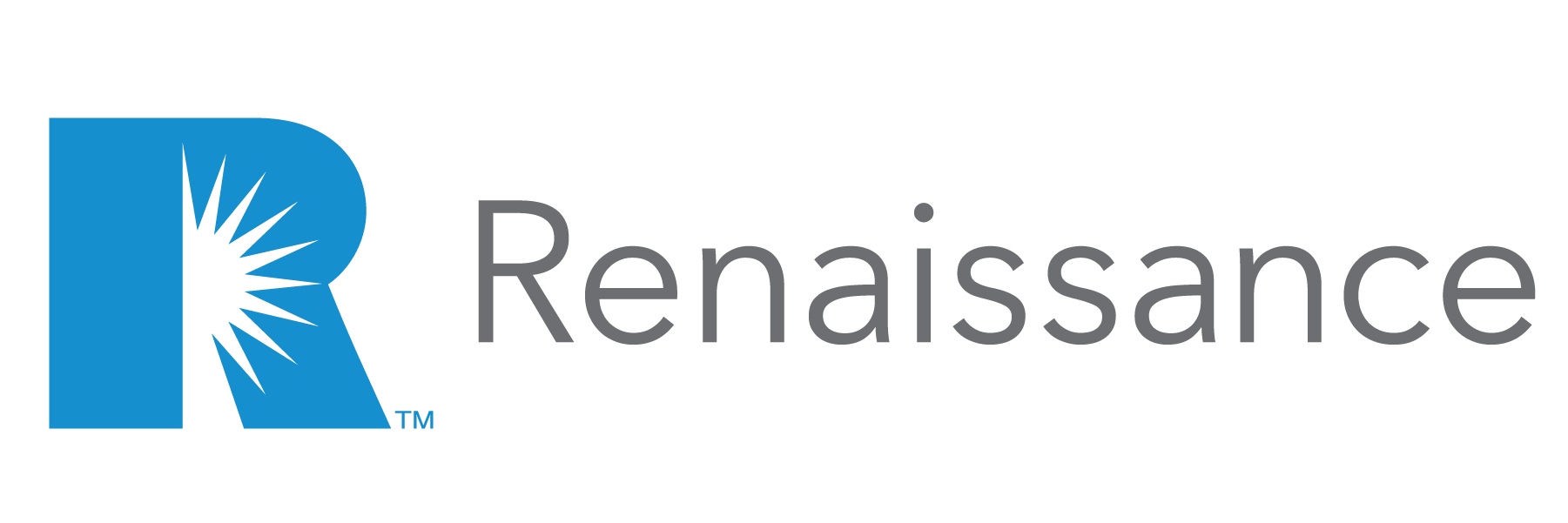Being an independent insurance agent is a career choice that presents its own set of unique challenges; joining an insurance cluster can offer some valuable solutions.
Operating your own insurance agency involves carrier appointments, cultivating relationships with clients, providing top-tier customer service, marketing responsibilities, recruiting and managing staff, billing and invoicing duties, adopting new technology solutions to help streamline processes, and more – all of which need to be addressed while keeping one eye on continually growing your business.
In an age when scale matters more than ever, an insurance cluster group can provide your agency access to insurance carriers, insurance products and commissions that are often reserved for larger agencies, helping to deliver your agency growth. Membership requirements for insurance agency clusters vary, as do their fee structures.
Insurance clusters are often mentioned in the same breath as insurance aggregators or insurance networks. There are some similarities among the three – and while those terms are sometimes used interchangeably, insurance agency clusters and insurance agency aggregators are not the same thing.
In this blog we will focus specifically on insurance clusters, and how they can benefit your agency.
Benefits of Joining an Insurance Cluster
An insurance cluster can deliver your independent agency the following benefits:
Better Access to Insurance Carriers
One of the most attractive benefits of joining an insurance agency cluster is gaining insurance market access. Agency size is a well-known barrier to becoming appointed with more insurance markets, and an agency cluster can help you acquire the market access you need to serve a variety of customers – especially commercial clients.
Be aware that having expanded access to more carriers may be accompanied by greater expectations to produce, depending on the insurance cluster group’s business goals.
Profit Sharing in Insurance Cluster Groups
Profit sharing is another benefit afforded by some insurance clusters. By leveraging strength in numbers, agencies that become part of an insurance agency cluster can take advantage of local and regional profit-sharing incentives that they otherwise may not have been able to achieve on their own due to premium requirements.
Savings on Software Licensing & Operational Costs
Insurance cluster groups have the added benefit of providing shared resources for agency marketing/advertising, consulting services, and agency management software. Individual agencies that operate on their own would have higher expenses if they were to work the same way.
Those cost savings can be considerable when it comes to your agency management software; consider that 31% of a typical business’ technology consists of legacy systems, which consume between 60% and 80% of the business’ IT budget just to keep those older, often obsolete systems running.
However, any cost savings achieved through joining an insurance agency cluster need to be balanced against the fee you’ll be paying for membership: Find out exactly what you’ll be receiving for what you’re expected to pay.
New Networking Opportunities
Gaining access to a wider network of fellow insurance agency owners and agents is another valuable perk of joining an insurance cluster. Sharing market intelligence is extremely useful in planning many of your agency’s strategies; there’s always much to learn, both good and bad, from how other principals manage their agency. There are things you can learn – and in some cases, new business opportunities to be gained – from fellow agents in your region that you might be hard-pressed to discover without them.
Having more contacts who are agency principals also provides you more opportunities for agency benchmarking, which is invaluable when assessing how your business stacks up against other independent insurance agencies.
What is the Difference Between an Insurance Cluster and an Aggregator?
Simply put, an insurance cluster offers your agency strength in numbers – but on a smaller scale than an insurance agency aggregator or an insurance agency network could afford you.
If you seek increased market access, better compensation for the business you write, and additional resources that can help your agency, the type of insurance agency cluster you’ll ultimately align with depends greatly on your agency’s size, the exact resources you need, and what you’re willing to pay for them.
Insurance cluster groups also tend to be regionally based, while insurance agency aggregators and agency networks typically possess national reach. The membership requirements for an aggregator or a network tend to be more stringent, as they maintain relationships with a greater number of insurance carriers than regional agency clusters; those member agencies need to present value to the group’s carrier partners.
What to Ask Yourself Before You Join an Insurance Cluster
Your decision to join an insurance agency cluster is greatly dependent on what exact resources your agency needs and what you can afford to pay for them in membership fees. That said, there are several questions to ask yourself – and any potential partner – while doing your due diligence to discover which insurance cluster might be best for your agency.
As you consider joining an insurance cluster, consider the following questions:
- What are the membership requirements? The means to membership vary from cluster to cluster. Most will require you to join with certain premium levels, and/or concentrations of business in a particular line. Many will require you to be located in a certain geographic area, relative to the cluster’s other member agencies. Some insurance clusters will even require you to adjust your agency’s branding to reflect your membership in the group.
- What will you gain by joining? Your decision to become part of an insurance cluster group should be contingent on its ability to provide you exactly what you need for your business to thrive. For some, that translates to increased market access; other agencies may be in greater need of technology resources. Have a firm grasp of all your needs, and only consider a cluster that satisfies them.
- What are all the fees involved, and will I be able to consistently afford them? Don’t paint yourself into a corner financially. Know what the expenses will be, and make sure that what you’re paying for will translate into reliable revenue for your agency. Fees can range from $200 per month to thousands of dollars.
- What are the production requirements, and will I be able to meet them? Again, be realistic: Optimism will only take you so far when it comes to hitting sales targets. Know the limits of your agency’s bandwidth.
- Where is the insurance cluster located? This is key, as most clusters are typically regionally based. If your future plans involve expanding your operations or moving, you may think twice about joining.
- What are the penalties for leaving the cluster? Most insurance clusters will, at a minimum, charge you an expensive exit fee for leaving the group. Know up front just what it will cost you to liberate your agency from an unsatisfying business relationship.
What to Ask the Insurance Cluster Before You Sign an Agreement
Although the aforementioned queries are very important to consider in your decision-making process, there are additional things you should know before you sign with an insurance cluster.
- Will the insurance cluster group have any control over your agency’s business decisions? While all of the agencies in an insurance cluster work toward common goals, you don’t want to be put in a position where, for example, you’re forced to remarket your agency’s business to the cluster’s carrier partners. As an independent agent, all decisions related to your agency should be made by just one person: you.
- How is the insurance cluster structured? Is there a hierarchy among the cluster’s members? In some insurance cluster groups, new members receive the same benefits as longstanding members. In others, that isn’t the case. Is there a formal structure for the sharing of resources, or is it more loosely structured? Know who you’ll be speaking to in order to take advantage of particular resources your agency needs.
- Which member principals lead the insurance cluster? Gain in informed sense of the leadership structure. Which agency owners have the final say in the insurance cluster’s business decisions? Do other agency owners gain more clout when the longer-vested principals sell or retire?
- Will your agency be required to sign a non-compete agreement? While this isn’t always a problem at the time you join, it can come into play down the line. Know the finer points of what a potential non-compete would mean for you in the future, should you decide to exit.
- Are you required to provide your own Errors & Omissions policy, or is one provided to the group’s member agencies? Clearly understand your E&O risks as part of the group, and ensure that you’ll be protected from potential liability.
- How does the insurance cluster vet and approve new members? The same standards your agency is judged upon when joining a cluster should be applied to any other agency that is admitted. Gain an informed understanding of what the barriers are for entry, and who maintains them.
- What happens when a member agency wants to leave? The departure of one or more key member agencies can cause major disruption for (and sometimes, the end of) an insurance cluster group. Does the group have strict policies on exiting the group? At a minimum, expect to pay a substantial fee (again, these vary from cluster to cluster). Learn what your agency’s own departure would entail; this is a business relationship, after all, and no business relationship lasts forever.
Knowing the answers to these questions can help your agency avoid any unpleasant surprises in the future.
What Insurance Cluster Will Be a Good Fit?
When considering which insurance cluster might be a good fit for your agency, it’s best to first determine exactly what your own needs are, before learning what various clusters offer. Knowing which of your agency’s problems you’re looking to solve will help you decide which insurance cluster might fit your needs.
What are your biggest pain points? Are you and your CSRs constantly bogged down with administrative tasks like billing and invoicing, that keep you from serving customers and selling? Are you and your staff running just to keep up? What would help your agency ease those burdens?
What resources would most benefit your agency? Do you want to increase efforts toward marketing your agency? Do you need a new management system or a software solution that will help you streamline outdated processes that have only grown more expensive to maintain?
Are you able to offer your clients the breadth and depth of insurance products that will not only gain you new customers, but also help you retain them? Is the compensation you’re being paid for the business you write equitable to the amount of work and care you’re investing?
Do you feel isolated as an agency principal? Would you like to be able to draw upon the knowledge of a group of fellow agency owners aligned with the same business goals?
Every agency’s needs are different, and as the owner, only you can answer these questions. The answers will help you determine which partner can provide you the best solutions.
Are There Any Costs Associated with Joining an Insurance Cluster?
There will always be fees associated with your agency’s membership in an insurance cluster, but how those fees are levied varies from group to group. Be wary of hidden costs when an insurance cluster group appears to charge no upfront fee. Here are some of the fees commonly charged by different insurance agency clusters:
Initiation/Start-up Fees
Initiation fees (or “start-up” fees) can range from a few hundred dollars to thousands. High start-up costs can present a barrier for entry for agencies without substantial capital. Go with what you know you can afford.
Monthly Fees for Insurance Cluster
The monthly fees charged by an insurance cluster can vary. Fees can include a fixed rate, a percentage of your sales, or a combination of the two. It’s a better bet to seek an agency cluster that collects a percentage of your sales, so that you don’t get stuck having to pay a higher fee during a sales downturn.
Maintenance Fees
Maintenance fees often pay for member benefits such as advertising and agency management software. However, not every insurance cluster charges a fee. Shop around for the best deal on the resources your agency needs most.
Equity Interest
While some insurance clusters allow their member agencies to maintain their independence and continue to own their own book of business, other insurance clusters can assume an equity interest in your agency (sometimes up to 60%). Deal terms for some of the latter types of arrangements aren’t for everyone, so be aware of the types of equity interest the cluster will hold in your agency (if any).
Exit Fee
As few insurance clusters ever want any of its members to depart the group, most insurance cluster groups charge exorbitant fees to those that decide to leave. Those penalties can include your agency being required to buy back your portfolio or enforcing non-compete clauses that might impair your ability to serve clients in certain territories. Do your homework and know up front exactly what the possible costs would be for a divorce from the insurance agency cluster.
Insurance Agency Networks/Agency Aggregators and Their Advantages
Insurance agency networks or aggregators (as opposed to insurance agency clusters) offer a more comprehensive suite of solutions for agencies that have been growing steadily but lack the resources to unlock their true growth potential.
The membership benefits of an ideal agency aggregator can include:
- Access to a wide range of carriers, increasing your options to serve clients
- Profit sharing and fixed compensation for the business you write
- Placement teams that work with you to secure coverage for commercial lines risks
- Freedom from minimum-volume requirements
- Specialists dedicated to growing your agency
- User-friendly technology that helps your agency make money
- Help with billing and invoicing, which takes time-consuming administrative work off your plate
- Experts who can guide your agency marketing efforts
- Assistance in managing your carrier relationships, providing you more time to sell
Being part of an insurance agency network (or aggregator) has its advantages over being part of an insurance cluster. An agency network can provide you access to an even greater number of carrier partners than a cluster, and can gain you even better profit-sharing terms due to a network’s size and increased bargaining power. Many networks of aggregators are also nationwide operations, so you have an even larger knowledge base of other agency owners to draw upon when you have questions.
Is an Insurance Cluster Right for You?
There are several factors that will ultimately determine whether joining an insurance cluster is the right move for your agency. Key among these is the amount of premium you write, which will affect which insurance cluster would accept you as a member. Your premium levels will also decide which cluster will offer you the best enhanced compensation for your membership in the group.
In the end, the “right” insurance cluster group is the one that will give your agency what you need to accelerate your agency’s profitability, for a price and terms that are fair to you as a member. Do your research and find the solution that will increase your earning power, add to your agency’s valuation, and help secure your agency’s future.



